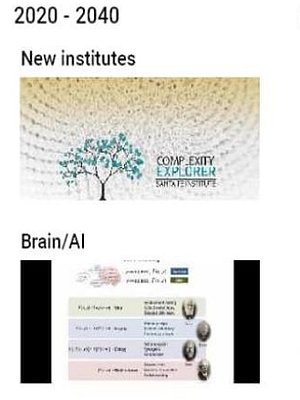
Author: Tesla плюшевый/Tesla plush
The Russian-Moldovan Team "Tesla plush", the future of science, knowledge and innovation.
The team analyzed negative trends in the field of knowledge, including the exponential accumulation of information with hyper-specialization and the inability to control (the so-called "megabit bomb" by S. Lem), the loss of old knowledge along with people, the lengthening of educational cycles, the crisis of bibliometry: "hirshebesie" (people's obsession with the index of the HIRSH within the framework of scientific research, showing the number of publications and their citations); politicization of the economy and the shaft of garbage publications ("publish or perish"), as well as the rejection of the innovation system. As a result, the team came to the conclusion that a new winter of artificial intelligence is inevitable. When describing the general negative trend, the team members proceeded from the stagnation model. Then, after analyzing what these problems are related to, we came to the conclusion that the key factor here may be the complexity of the systems with which scientists interact today. This prompted the team, as part of its project, to propose a plan to overcome the stagnation crisis, tied to work with complex systems, and a long-term comprehensive strategy for the development of the scientific industry in the next 80 years:
In 2020 - 2030, it is required to develop a number of sciences that study complex systems, including advanced economics, neuroscience, etc., and then apply the theoretical knowledge gained to create fundamentally new technological solutions. This stage includes the organization of new research initiatives based on the best universities and the training of personnel to study complexity.
In 2025-2040, it is planned to apply the first successes of theoretical neuroscience to build the first AI systems in conjunction with the enhancement of human intelligence, which will speed up and make more efficient handling of complex systems.
This will make it possible to implement by 2030 - 2050 a nanobiorevolution associated with solving the mysteries of the complexity of living systems and creating synthetic nanosystems in the likeness of the first.
In 2040-2080, there will be a transition to the noosphere, where evolution will become manageable. A person will learn how to manage the climate and society. This will happen in parallel with the creation of digital Earth twins. There will be an analogue of psychohistory.
By 2060 - 2100, humanity, the team members hope, will solve the problem of AI friendliness. A limited form of digital immortality based on human reverse engineering will be achieved. The ecosystem will include both posthumans and superintelligence. Humanity will enter the Era of Singularity.